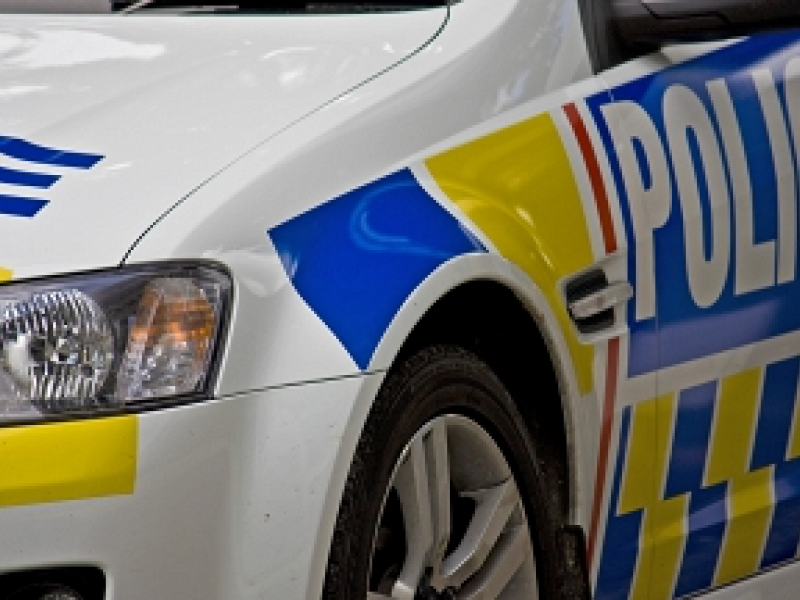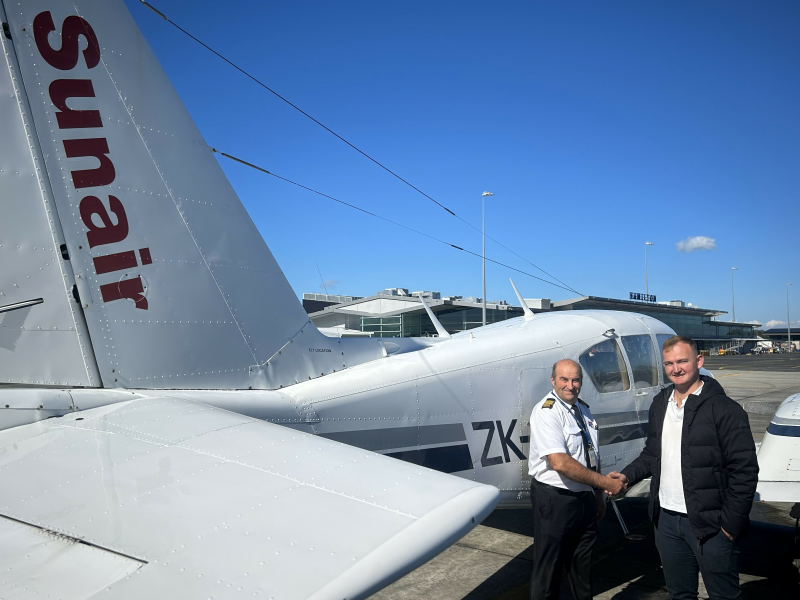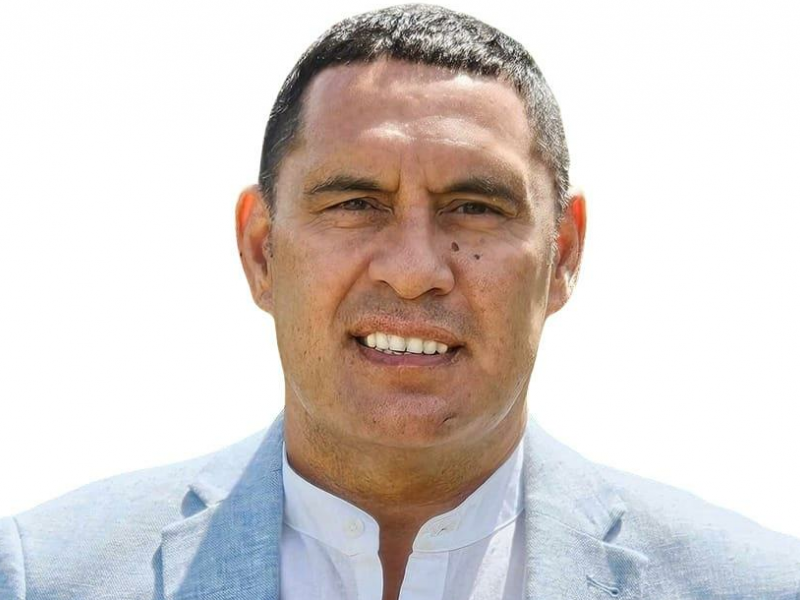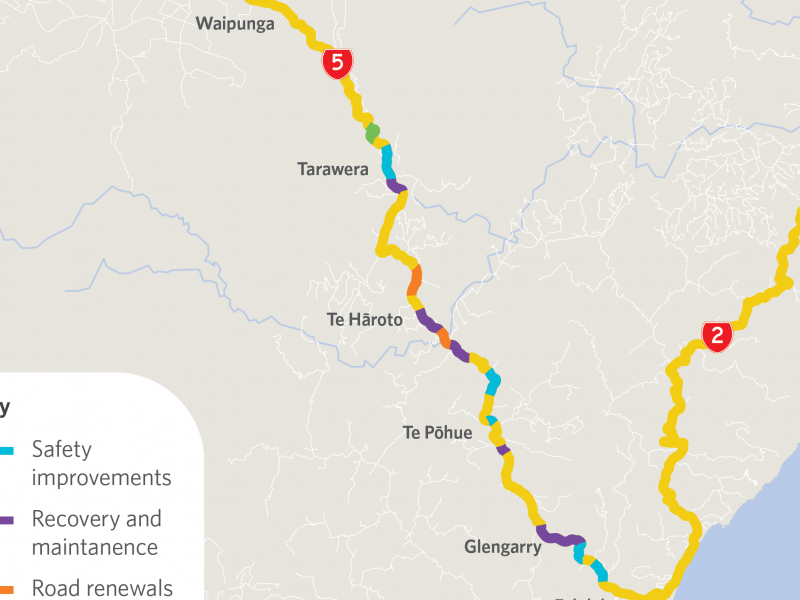Video: Changes need to be made at a local, regional and national level, says head of review into Cyclone Gabrielle response
Changes need to be made at a local, regional and national level when it comes to handling natural disasters, says the head of an independent review panel into the Cyclone Gabrielle response.
A day after he presented his findings to the Hawke’s Bay Civil Defence Emergency Management Group Joint Committee, former National Police Commissioner Mike Bush said his Panel’s recommendations were aimed at locally, regionally and nationally. The report, which is 117 pages long, contains nine tier one recommendations and a further 66 tier two recommendations.
“In summary, there needs to be performance improvements locally and regionally, and they're very much aware of that and we point to the why. And nationally the model does need to change to ensure that there's a far more coordinated, cohesive response to any similar crisis.”
The review was an independent examination of the Hawke’s Bay Civil Defence Emergency Management (CDEM) Group’s response to Cyclone Gabrielle. The CDEM reports to the Joint Committee which is made up of regional leaders including the mayors and regional council chair and chair of the local iwi, Ngāti Kahungunu.
The review found that Cyclone Gabrielle highlighted the limitations and challenges inherent in New Zealand’s current emergency management model, particularly when it must address a severe and widespread disaster with multiple impacts and a lengthy recovery period.]
Bush told journalists in a online media briefing this morning that his team had spoken to a number of people who contacted what they believed to be Civil Defence, only to be told that they were overacting.
And that happened on a number of occasions according to the people we spoke with. That's really relevant in terms of situational awareness and taking the right approach into disaster management. So you must have a way to understand everything that you are told. We call it intelligence gathering, and that will then inform your response. And you need to get it from multiple sources. You need to verify it. But to tell people that they're overreacting is exactly what should not occur.”
Bush says that his Panel’s recommendation is that when the Government looks at any changes, that they need to take a first principles approach.
“It's really important to work out the role of the centre or the national role, the regional role, and the local role. So who leads? For example, the national role might be to build national capability, to provide coordination, bring expertise and resource because it's still important in any crisis that there is a level of local leadership, people who know their communities, but that capability and experience must be built beforehand.”
Asked by Hawke’s Bay App if New Zealand’s system of volunteers at the grassroots of emergency services, especial Fire and Emergency, Bush said there was still an important place for volunteers.
“There is so much capability out there. Volunteers absolutely have their place. We need good people doing good things, but they must be in the right roles. So those important roles, whether they're leadership or leadership support roles, need to be filled by experienced and capable people. Because when you have a crisis like this that turns into a fatal crisis, there is a lot of pressure on people and they need to be experienced. They need to have the capability. That's what our people deserve. So we've got to find a way of leveraging that and bringing that into the operating model.”
The report also highlighted that iwi were left out of the decision making I the critical aftermath of the Cyclone.
“The real value is in the reduction and readiness before the response stage. So working with Iwi, working with communities to ensure that they're equipped, trained, they have their own expertise and resource and they practice and simulate any response. And they do that with Civil Defence and other emergency management people. And when it comes to the response, they stand up, but they're included. They must be included in the communications and the coordinated response. That didn't occur anywhere near as well as it should.”
Asked whether he thought that the Hawke’s Bay local councils needed to apologise for the handling of the Cyclone response and if people needed to be held accountable, Bush said that while he had an opinion, it was not his place to state what should happen.]
On Monday Bush presented his report to the Joint Committee. However, he was not at the present at the media briefing that followed. Bush said he had been available but that the mayors and regional leaders had wanted to “own the report”.
There is also a Government Inquiry, headed by former Governor-General Sir Jerry Mateparae, that is reviewing the response to the North Island severe weather events last year, including Cyclone Gabrielle. The Government announced the inquiry in June and it is expected to report back soon.
This comes after another independent review commissioned by the Napier City Council found late last year that the Napier City Council was “hugely unprepared” for Cyclone Gabrielle in terms of Emergency Management capability.
The review, undertaken by Resilient Organisation Ltd., covers the Council’s internal response coordination, which includes crisis management and business continuity; and external response, which includes civil defence and emergency management.
Watch the media briefing by the region's mayors, regional council chair and iwi leader. https://www.facebook.com/hawkesbayapp/videos/351709344529644
To read the full report: https://www.hbemergency.govt.nz/assets/Uploads/HBCDEM-Response-to-Cyclone-Gabrielle-Final-Report.pdf

























